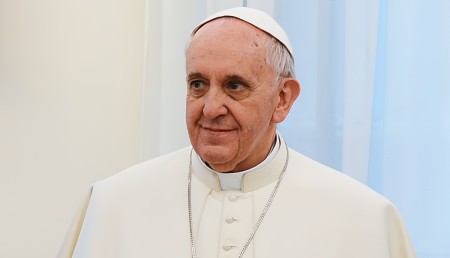 Dear readers, Catholic Online was de-platformed by Shopify for our pro-life beliefs. They shut down our Catholic Online, Catholic Online School, Prayer Candles, and Catholic Online Learning Resources—essential faith tools serving over 1.4 million students and millions of families worldwide. Our founders, now in their 70's, just gave their entire life savings to protect this mission. But fewer than 2% of readers donate. If everyone gave just $5, the cost of a coffee, we could rebuild stronger and keep Catholic education free for all. Stand with us in faith. Thank you. Help Now >
Dear readers, Catholic Online was de-platformed by Shopify for our pro-life beliefs. They shut down our Catholic Online, Catholic Online School, Prayer Candles, and Catholic Online Learning Resources—essential faith tools serving over 1.4 million students and millions of families worldwide. Our founders, now in their 70's, just gave their entire life savings to protect this mission. But fewer than 2% of readers donate. If everyone gave just $5, the cost of a coffee, we could rebuild stronger and keep Catholic education free for all. Stand with us in faith. Thank you. Help Now >
Benedict XVI Calls Doctors to recover 'Bedside Manners'
FREE Catholic Classes
The ill "want to be seen with benevolence, not just examined; they want to be listened to, not just exposed to sophisticated diagnoses."
Highlights
VATICAN CITY (Zenit) - Benedict XVI is calling for a focus on recovering better relationships between doctors and their patients, saying that this is key for humanizing medicine.The Pope affirmed this during an audience given to members of the Italian Society of Surgery, which is having its 110th international conference.
Doctor-patient communication should be the base for an "authentic therapeutic alliance with the patient" that permits defining the strategy to be used for the illness," he said.The Pontiff affirmed that a doctor can do more for his patient if a good relationship is developed: "He can motivate the patient, sustain him, inspire him, and even maximize his physical and mental strength, or, on the contrary, he can weaken him and frustrate his strengths, thus reducing the very efficacy of the treatment given."
What should distinguish a doctor, the Holy Father contended, are "those human qualities that, beyond professional competence in the strict sense, make the patient value him." A sick person should not be considered an antagonist, he added, but rather an "active and responsible collaborator in the therapeutic treatment," though "respecting his self-determination."
The ill, Benedict XVI continued, "want to be seen with benevolence, not just examined; they want to be listened to, not just exposed to sophisticated diagnoses; they want to perceive with certainty that they are present in the mind and the heart of the doctor who heals them."
The Pope acknowledged that the autonomy of the patient must be respected, but he said that "the professional responsibility of the doctor should bring him to propose treatments that look to the true good of the patient, aware that his specific competence generally puts him in a place to better evaluate the situation."
This relationship is so important, the Holy Father explained, that one has to "view with suspicion any attempt to meddle in it from the outside." Referring to the theme chosen by the surgeons for their conference -- "For a Surgery That Respects the Ill" -- the Pope explained that the foundation of medicine should always be "respect for human dignity. In fact, it demands the unconditional respect of every human being, born or unborn, healthy or sick, regardless of the condition in which they find themselves."
Better but worse
Benedict XVI noted that medicine has evolved such that, "while in the past it was limited to relieving," today it "is capable of healing." But, he said, this implies a risk: That of "abandoning the patient when it is seen that a noticeable result cannot be obtained."
Another risk, the Pontiff said, is that of making the patient into a thing, submitting him to "rules and practices that are often foreign to his way of being," in the name of "the demands of science, technology and the health care organization."
It is necessary, then, to have three objectives present in the exercise of medicine, the Pope said: "Heal the ill person or at least try to efficiently intervene in the progression of the illness; relieve the painful symptoms that accompany the sickness, especially when it is in an advanced stage; and care for the ill person in all of his human hopes."
"Even when there is no possibility of healing, much can still be done for the sick," the Bishop of Rome affirmed. "His suffering can be relieved, above all [by] accompanying him in his journey, bettering as much as possible his condition of life."Every patient, even the gravely ill one, has an unconditional value, a dignity worthy of being honored."
Join the Movement
When you sign up below, you don't just join an email list - you're joining an entire movement for Free world class Catholic education.

-

-
Mysteries of the Rosary
-
St. Faustina Kowalska
-
Litany of the Blessed Virgin Mary
-
Saint of the Day for Wednesday, Oct 4th, 2023
-
Popular Saints
-
St. Francis of Assisi
-
Bible
-
Female / Women Saints
-
7 Morning Prayers you need to get your day started with God
-
Litany of the Blessed Virgin Mary
Pope Francis Suffers Fall: A Look at Papal Health and Succession
-

The Erosion of Civility in Congressional Hearings: A Call for Professional Decorum
-

Bishop Strickland and Others Defend Apostolic Tradition in New Documentary on the Church's Enduring ...
-
At Least 25 Dead as Wildfires Continue to Rage Across Los Angeles, Arson Investigations Underway
-
Australian Woman Charged with Torture After Exploiting Child for Donations
Daily Catholic
 Daily Readings for Friday, January 17, 2025
Daily Readings for Friday, January 17, 2025 St. Anthony the Abbot: Saint of the Day for Friday, January 17, 2025
St. Anthony the Abbot: Saint of the Day for Friday, January 17, 2025 Prayer for a Blessing on the New Year: Prayer of the Day for Tuesday, December 31, 2024
Prayer for a Blessing on the New Year: Prayer of the Day for Tuesday, December 31, 2024- Daily Readings for Thursday, January 16, 2025
- St. Fursey: Saint of the Day for Thursday, January 16, 2025
- St. Theresa of the Child Jesus: Prayer of the Day for Monday, December 30, 2024
![]()
Copyright 2024 Catholic Online. All materials contained on this site, whether written, audible or visual are the exclusive property of Catholic Online and are protected under U.S. and International copyright laws, © Copyright 2024 Catholic Online. Any unauthorized use, without prior written consent of Catholic Online is strictly forbidden and prohibited.
Catholic Online is a Project of Your Catholic Voice Foundation, a Not-for-Profit Corporation. Your Catholic Voice Foundation has been granted a recognition of tax exemption under Section 501(c)(3) of the Internal Revenue Code. Federal Tax Identification Number: 81-0596847. Your gift is tax-deductible as allowed by law.






 Daily Readings for Friday, January 17, 2025
Daily Readings for Friday, January 17, 2025 St. Anthony the Abbot: Saint of the Day for Friday, January 17, 2025
St. Anthony the Abbot: Saint of the Day for Friday, January 17, 2025 Prayer for a Blessing on the New Year: Prayer of the Day for Tuesday, December 31, 2024
Prayer for a Blessing on the New Year: Prayer of the Day for Tuesday, December 31, 2024

